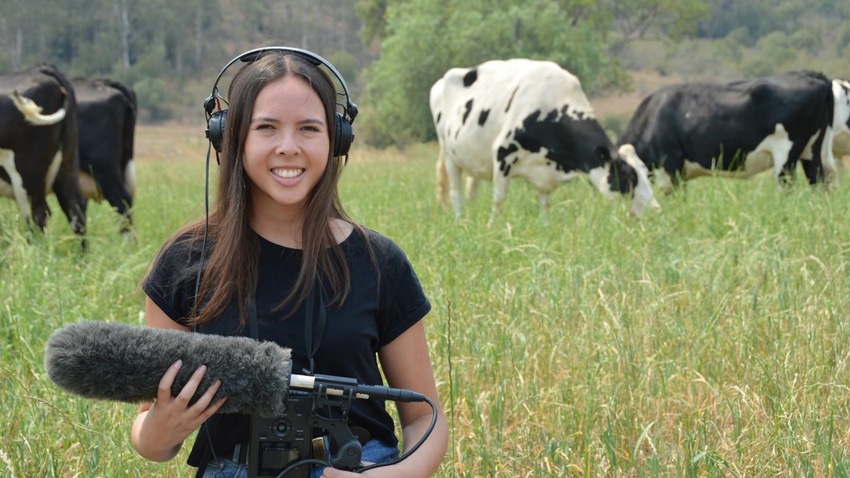Research into cows' vocal characteristics aims to improve measures of animal well-being.
December 23, 2019

Research at the University of Sydney in Australia has shown that cows maintain individual voices in a variety of emotional situations, and cows "talk" to one another and retain individual identity through their lowing.
By studying a herd of 18 Holstein-Friesian heifers over five months, doctoral student Alexandra Green from the University of Sydney School of Life & Environmental Sciences determined that cows gave individual voice cues in a variety of positive and negative situations. This helps them maintain contact with the herd and express excitement, arousal, engagement or distress, she said.
The study recorded 333 samples of cow vocalizations and analyzed them using acoustic analysis programs with assistance from colleagues in France and Italy, the University of Sydney said. The paper was published in Scientific Reports.
The research concluded that farmers should integrate knowledge of individual cow voices into their daily farming practices, Green said.
"We found that cattle vocal individuality is relatively stable across different emotionally loaded farming contexts," she noted.
Positive contexts were during estrus and anticipation of feeding, Green said, while negative contexts were when cows were denied feed access and during physical and visual isolation from the rest of the herd.
"We hope that, through gaining knowledge of these vocalizations, farmers will be able to tune into the emotional state of their cattle, improving animal welfare," Green said.
She added that by understanding these vocal characteristics, farmers will be able to recognize individual animals in the herd that might require individual attention.
It was previously known that cows and their offspring could communicate by maintaining individuality in their lowing. Green's research confirms that cows maintain this individual voicing through their lives and across a herd.
"Cows are gregarious, social animals. In one sense, it isn't surprising they assert their individual identity throughout their life and not just during mother-calf imprinting," Green said. "This is the first time we have been able to analyze voice to have conclusive evidence of this trait."
Green worked with bio-acousticians in Saint-Etienne, France, including co-authors David Reby and Dr. Livio Favaro, to analyze the vocal traits of the cattle.
The study will be incorporated into her doctorate, which investigates cattle vocal communication and use in welfare assessment on dairy farms.
You May Also Like

.png?width=300&auto=webp&quality=80&disable=upscale)

